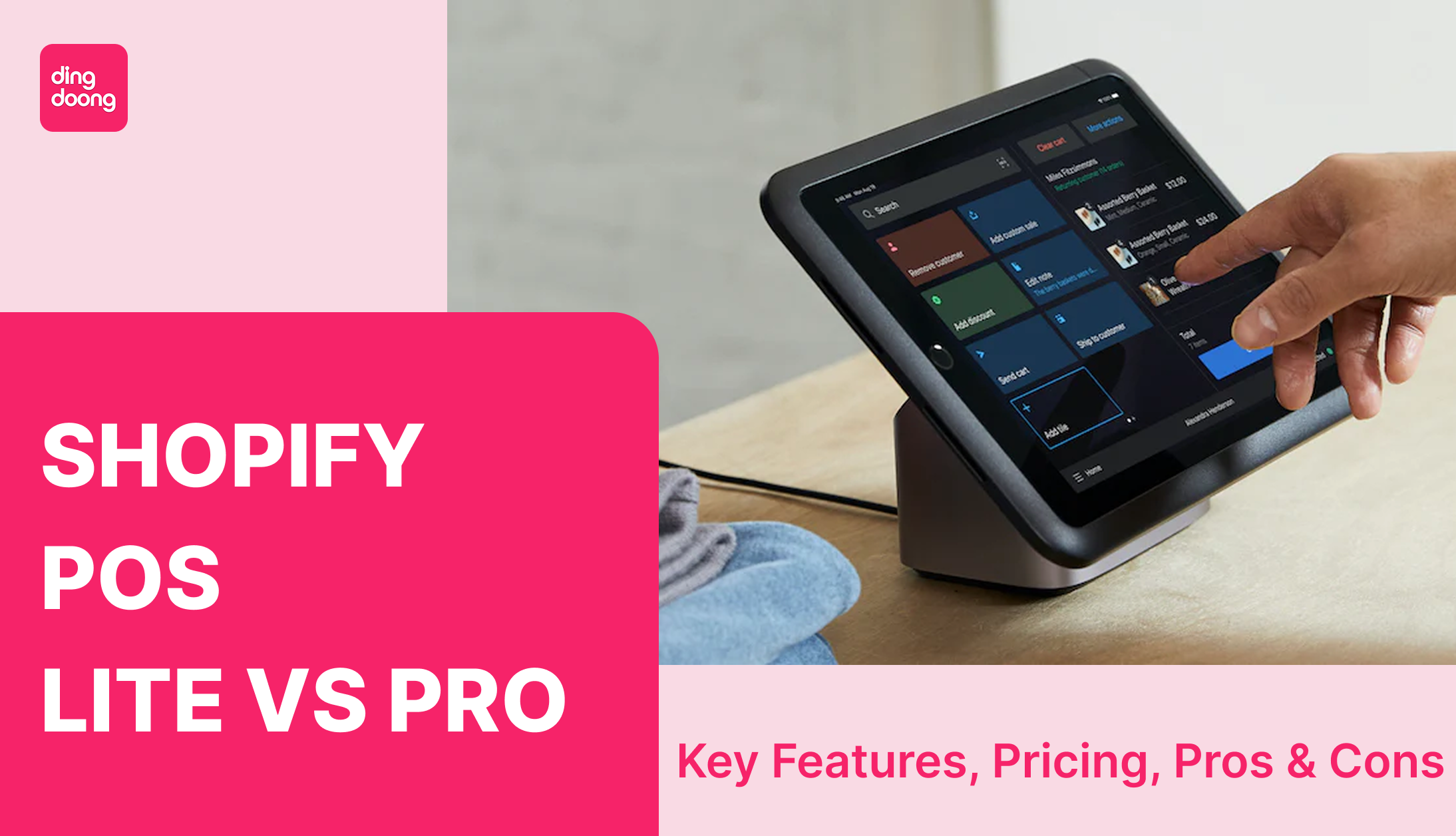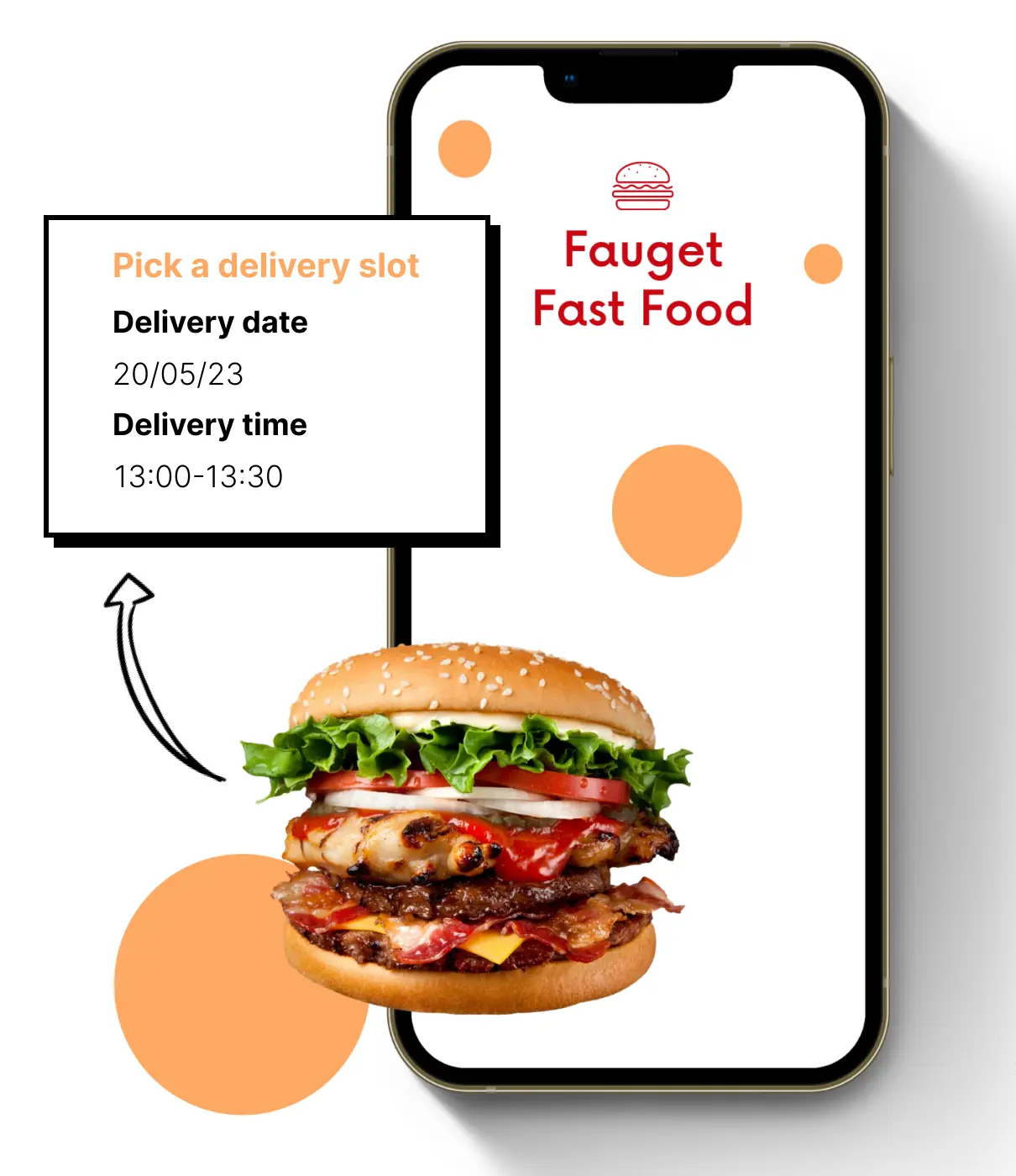Step-by-Step Guide to Creating a QR Code for Event Management
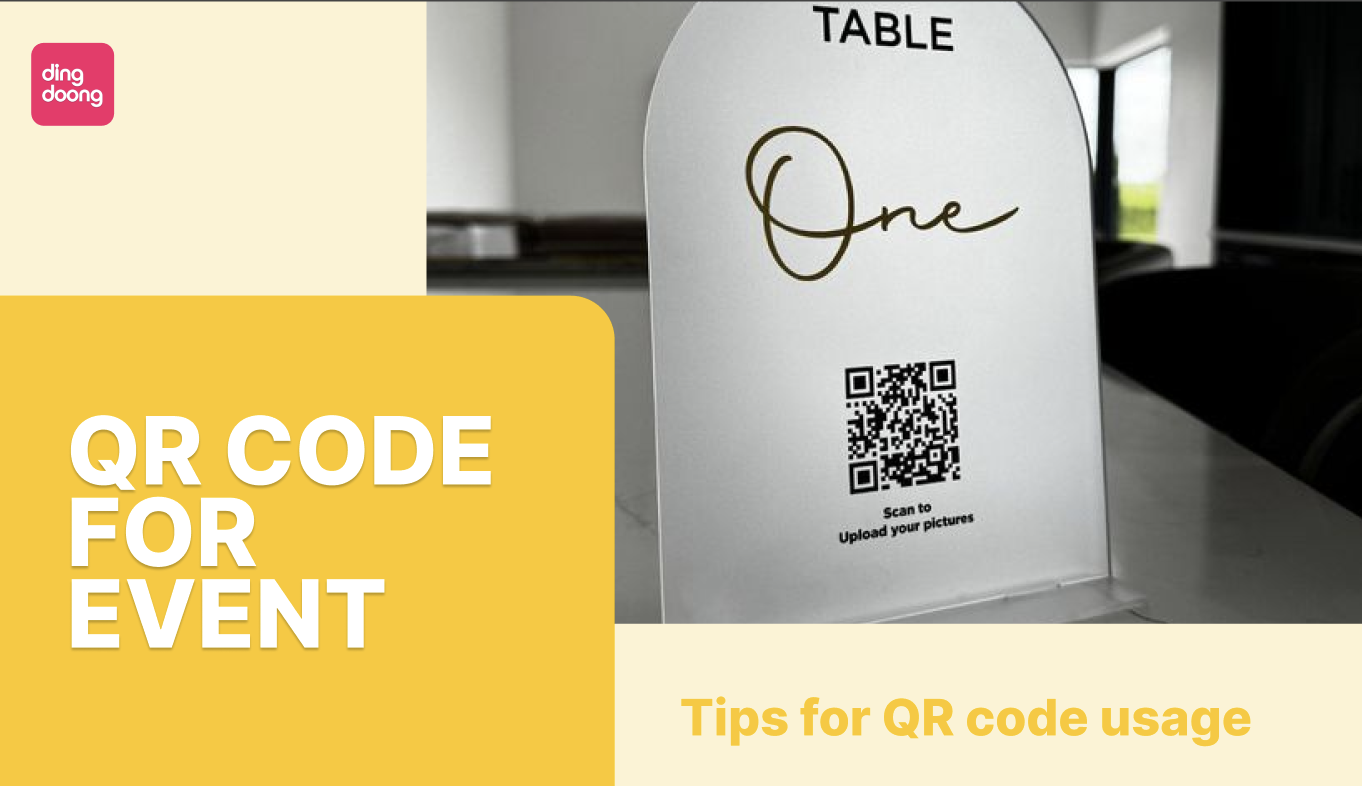
Event management in 2024 is more digital than ever, with a strong emphasis on improving the attendee experience. QR codes for events have become a key tool, making it easy for organizers to manage tasks like registration, marketing, and post-event interactions. A 2023 study by Eventbrite showed that using QR codes at events can increase attendee participation by up to 25%, creating a more dynamic and engaging environment. Whether it’s gathering real-time feedback or speeding up check-ins, QR codes offer numerous benefits that improve efficiency and enhance interaction between organizers and attendees. In this article, we'll explore how you can effectively use QR codes at your next event.
Why Do You Need a QR Code for Event?

QR codes, or Quick Response codes, are two-dimensional barcodes that store and transmit information when scanned with a smartphone or QR code scanner. In recent years, they’ve become an essential tool in event management because of their flexibility and ease of use. As event marketing shifts towards digital solutions, QR codes play a critical role in simplifying processes like registration, marketing, and post-event interaction. For attendees, QR codes streamline check-ins and make accessing information easier, while for organizers, they provide efficient ways to manage attendee data, share event details, and maintain engagement after the event. Here are three common ways QR codes are used in event management to improve efficiency and enhance attendee experiences:
Ticketing and Registration
QR codes streamline check-ins by scanning the code, and attendees can validate their tickets instantly, reducing queues and cutting down wait times. This fast, contactless entry process improves the attendee experience and ensures a smooth start to the event.
>>> Read More: QR Code Tickets: How To Create One For Free
Marketing and Promotion
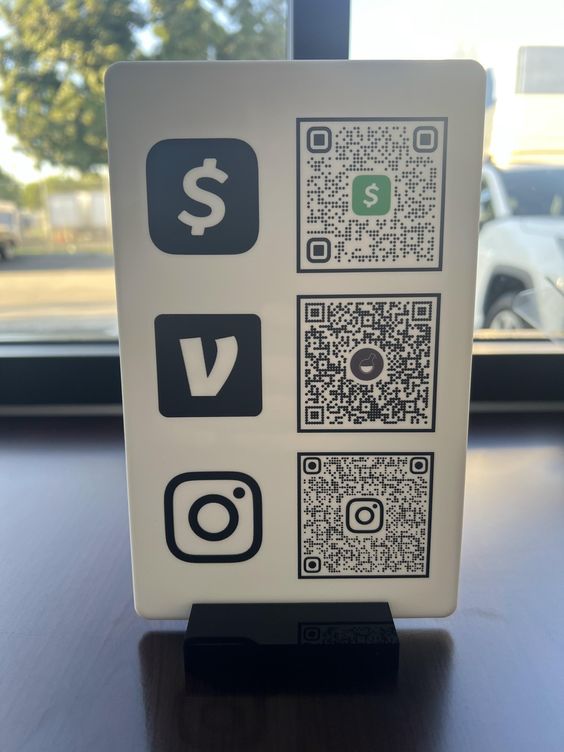
Pre-event materials such as posters, brochures, and digital ads can feature QR codes that lead directly to event registration pages or provide additional information. To strengthen brand identity, organizers can design custom QR codes with logos, colors, and clear calls to action (CTAs), making the promotional material more engaging and consistent with the event's branding.
In-Event Engagement
During the event, QR codes can provide access to dynamic content like schedules, maps, and speaker bios. Additionally, organizers can enhance interaction by allowing attendees to scan QR codes to view image galleries, participate in live polls, or submit real-time feedback, creating a more interactive and engaging experience.
How to Create and Use a QR Code for an Event?
Creating a QR code for an event is simple, especially with the right tools. A highly recommended option is DingDoong - Free QR Code Generator, which makes the process easy and customizable. Here’s a step-by-step guide to creating a QR code that will enhance your event experience:
Choose the Right Type of QR Code
There are several types of QR codes for events, each serving a different purpose. Here are some options that could be useful for your event:
- URL QR Codes: Direct attendees to your event website, where they can find essential information such as venue details, schedule, and more.
- RSVP QR Codes: Simplify the registration process by linking the QR code directly to an online RSVP form, allowing attendees to confirm their participation quickly and easily.
- Feedback QR Codes: Engage attendees by linking to a feedback form, survey, or guestbook, enabling them to provide input before, during, or after the event.
- SMS QR Codes: Generate a pre-written text message for quick RSVPs, event updates, or directions.
- vCard QR Codes: Share contact details, such as the event planner’s information, to ensure easy communication during the event.
- Plain Text QR Codes: Display a short message, such as announcements or updates, directly on attendees’ phones when scanned.
Customize Your QR Code
Once you’ve chosen the appropriate QR code type for your event, customization is the next step. With DingDoong or similar tools, you can tailor the design to fit your event’s theme. Here’s how to do it:
- Enter Your Information: Input the relevant link or information that the QR code will direct users to.
- Customize the Design: Modify the colors, add your logo, or adjust the size to ensure the QR code blends well with your event branding.
- Generate the QR Code: Click “Generate” to create your custom QR code.
- Save and Use: Download the code and incorporate it into your event materials, whether print or digital.
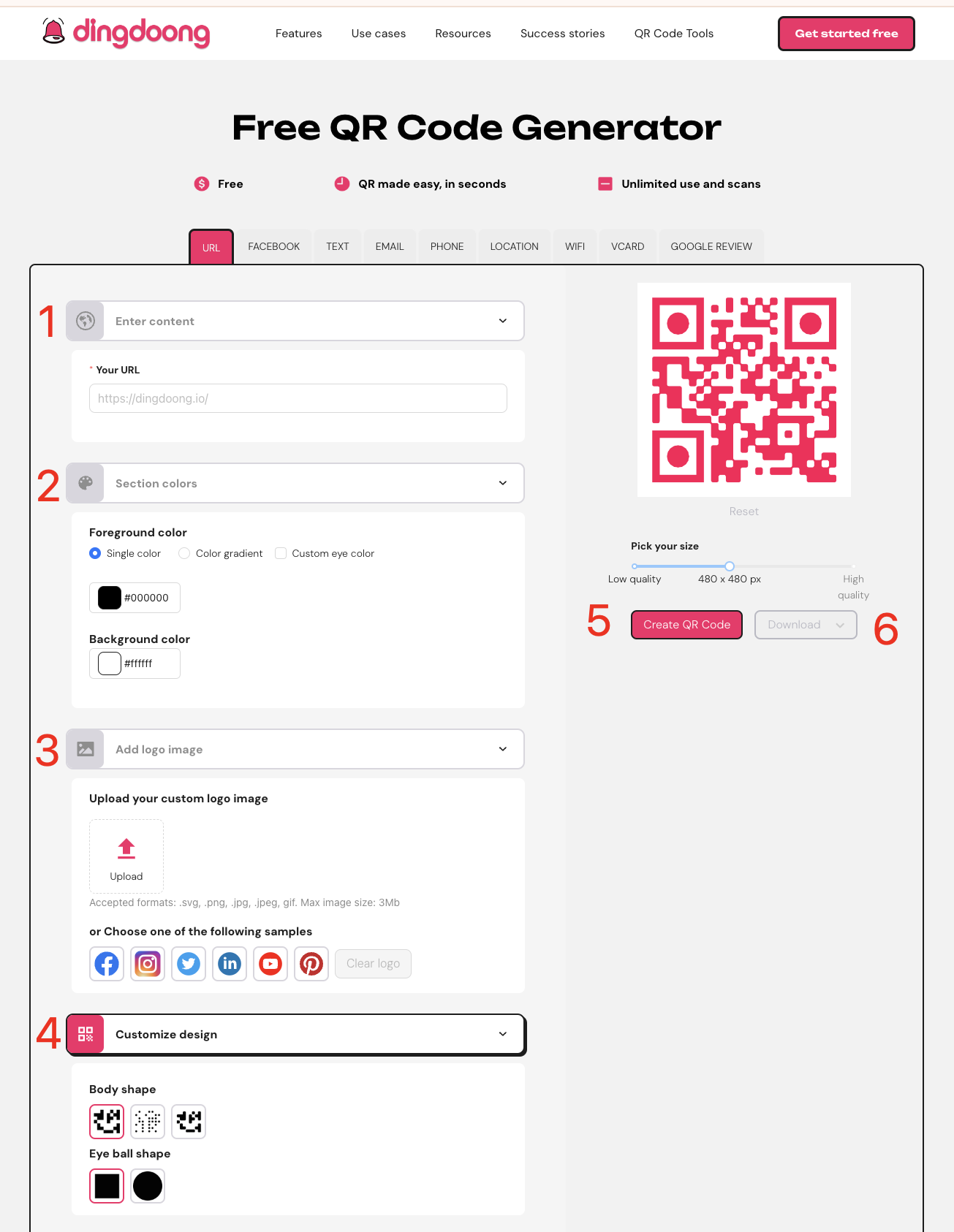
Test and Use the QR Code at Your Event
After creating the QR code for your event, it’s crucial to test it across various devices to ensure seamless functionality for all attendees:
- Generate and Test: Use the QR code generator to create the code, and then test it on multiple smartphones to ensure it works properly.
- Add to Event Materials: Incorporate the QR code into event posters, tickets, or digital media in visible spots, like at registration areas or on screens, where attendees can easily access it.
- Include Instructions: Make sure to provide a short instruction or call-to-action (e.g., “Scan here for event details”) to encourage attendees to use the QR code.
Tips for QR Code Usage in Events
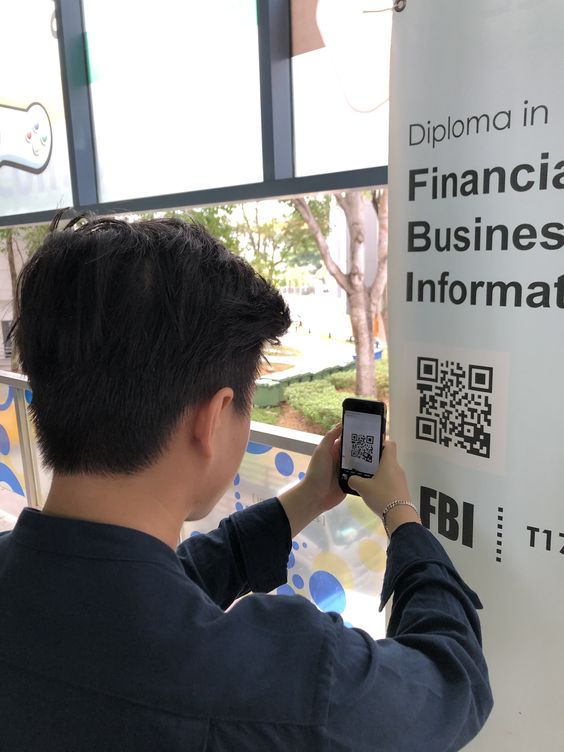
To maximize the effectiveness of QR codes for events, it's important to follow best practices that ensure ease of use, visibility, and engagement. Here's how to make the most of QR codes at your event:
Design Considerations
Ensure that your QR code for events is the right size for both print and digital use. For printed materials, the minimum size should be 1 x 1 inch (2.5 x 2.5 cm). For digital formats, make sure the code is large enough to scan easily on various screens. Also, always provide clear instructions for scanning the event QR code and explain what users can expect after scanning (e.g., access to event schedules, maps, or exclusive content). This helps enhance the attendee experience and encourages more interaction.
Tracking and Analytics
Use tools that combine tracking features to monitor scans of the QR code for event registration during the event. Tracking allows you to gauge attendee engagement and make real-time adjustments, such as optimizing content or adding more codes in high-traffic areas.
Placement and Visibility
Place QR codes where attendees are most likely to see and use them—on tickets, event posters, and digital materials. Ensure they are at eye level and easy to access. Proper placement in high-traffic areas, such as entrances or near event features, increases the likelihood of scans. For event organizers, using an event QR code generator ensures a quick and efficient creation of custom codes that fit your branding.
Case Studies: Successful QR Code Integration for Events
QR codes for events have become a powerful tool in various industries, helping to enhance attendee experiences, streamline operations, and improve engagement. Below are real-life examples of how QR codes have been successfully integrated into events across different sectors.
Festivals: Enhancing Attendee Experience
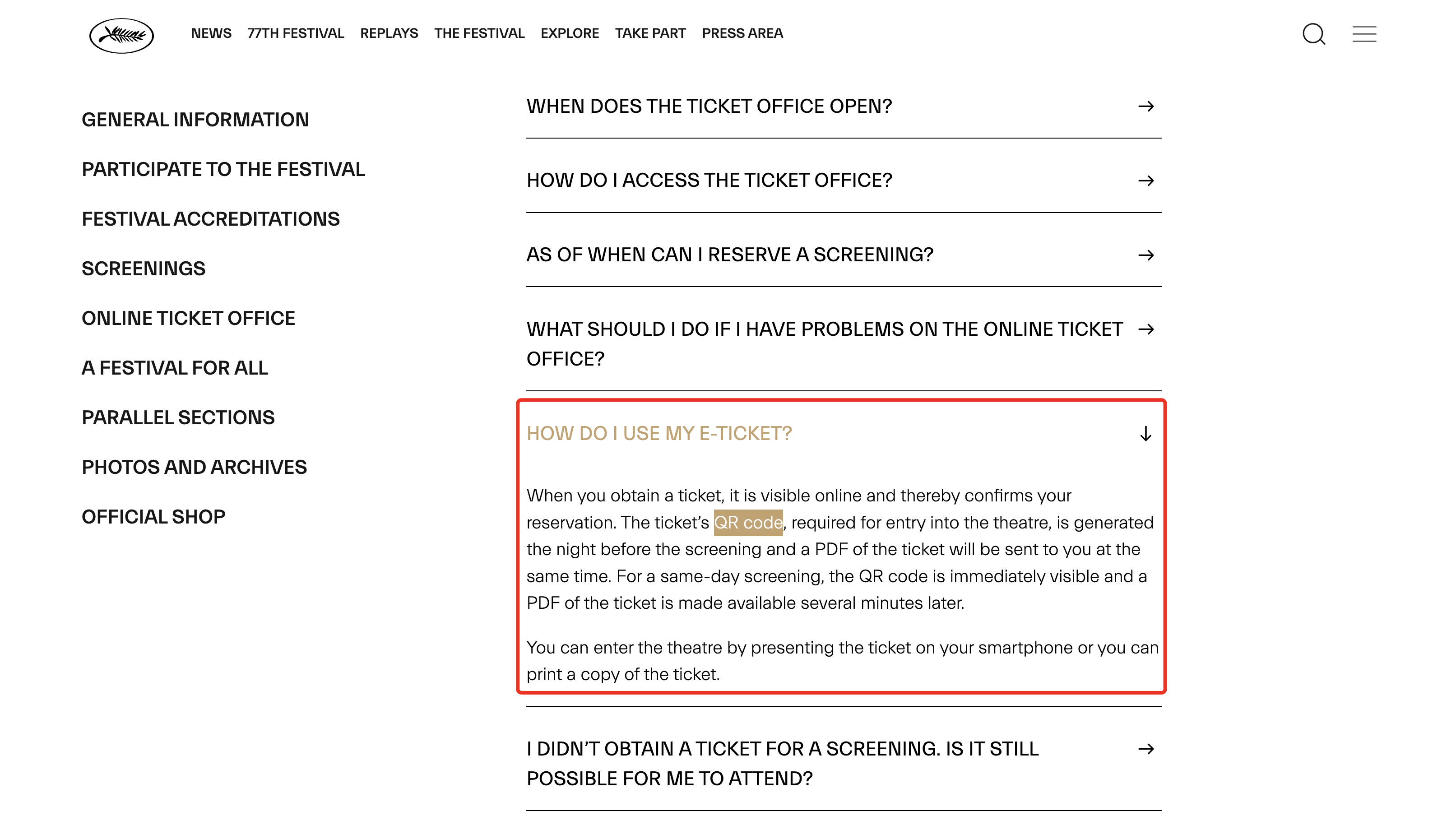
At major cultural festivals, such as the Cannes Film Festival, QR codes for event registration were used to streamline the check-in process and eliminate the need for paper tickets. Attendees scanned QR codes to access real-time event updates, venue maps, and schedules, which enhanced the overall experience by reducing wait times and improving navigation.
Conferences: Boosting Networking and Information Sharing
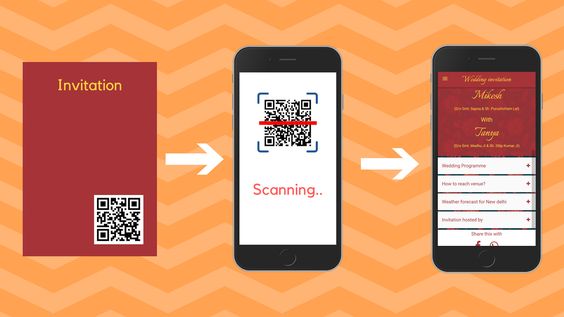
International tech conferences have effectively used QR code generators to embed QR codes on attendee badges. These QR codes enabled seamless networking by allowing participants to quickly exchange contact information through a simple scan, eliminating the need for physical business cards. Additionally, QR codes on presentation materials provided attendees with instant access to speaker notes and session recordings.
Corporate Events: Streamlining Operations with Feedback QR Codes
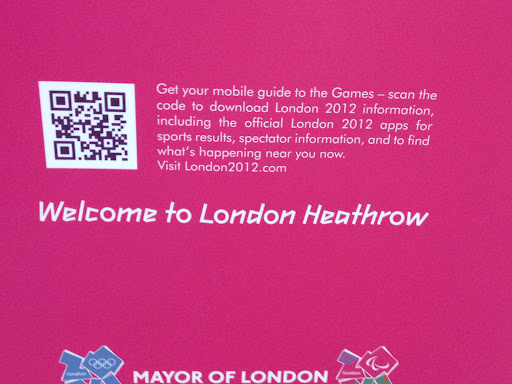
During the 2012 London Olympic Games, QR codes played a vital role in managing large crowds. QR codes provided visitors with access to detailed venue maps, schedules, and real-time updates, ensuring a smooth experience across multiple venues. This innovative use of QR codes not only improved attendee engagement but also helped the organizers manage the event more efficiently. By using QR codes generated through event QR code generators, organizers can optimize check-ins, streamline networking, and gather valuable attendee feedback, making QR codes for events indispensable for enhancing both attendee engagement and operational efficiency.
Conclusion
Incorporating a QR code for event operations can transform how you manage attendee registration, engagement, and real-time updates. Whether you're planning a large festival or a small corporate event, QR codes simplify logistics and improve the overall experience for everyone involved. As events continue to shift towards digital solutions, using QR codes will help you stay ahead of the curve, ensuring your event is efficient, engaging, and seamless. So, what’s stopping you? Start integrating QR codes into your event planning and see the positive impact for yourself!
Learn More: QR Code in Marketing: 9 Genius Use Cases to Explore
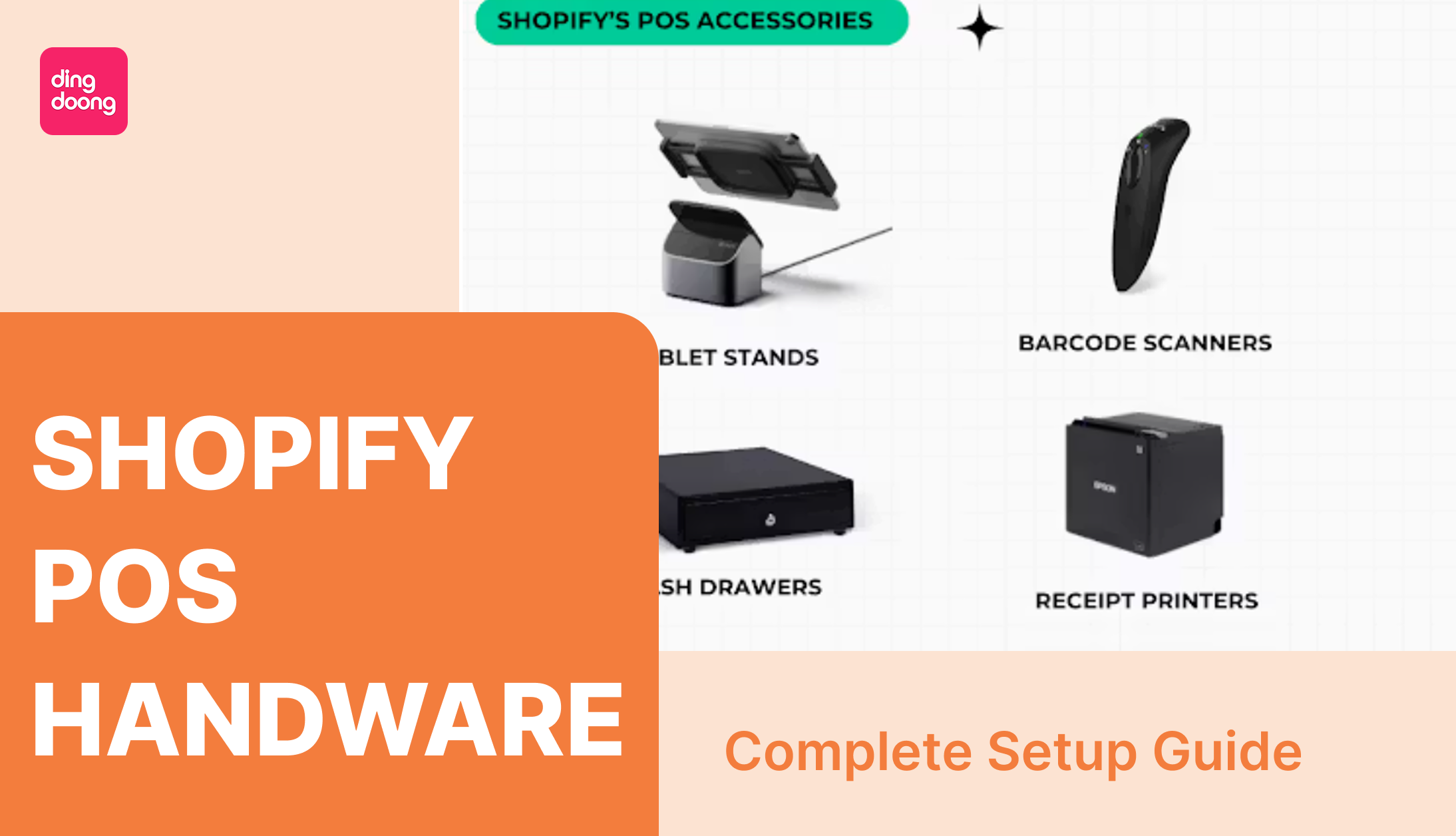
Shopify POS Hardware: Complete Setup Guide for Business Owners

Exclusive to Shopify Plus: Checkout Date Picker
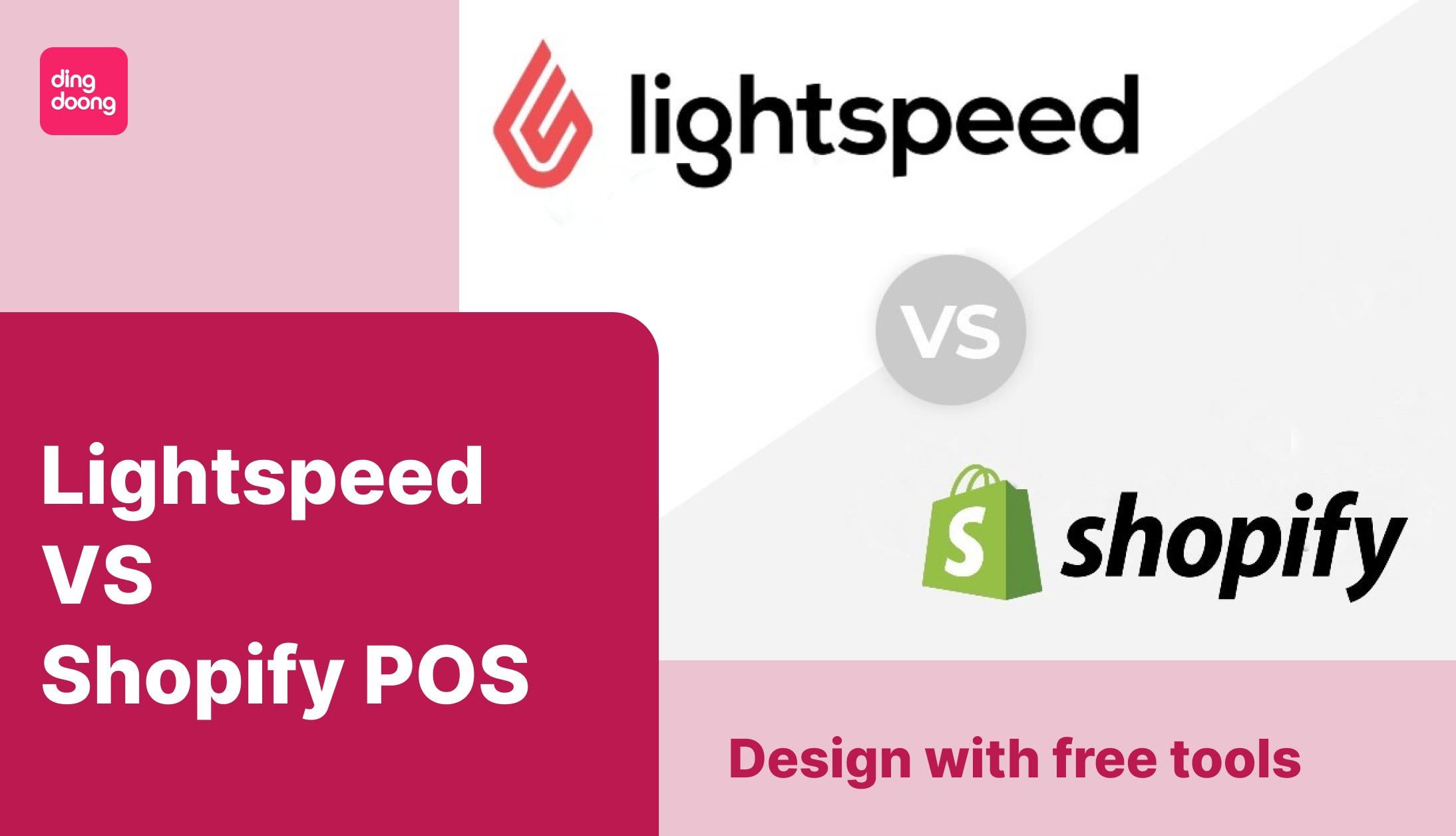
Lightspeed vs Shopify POS: Which Is Right for Your Business in 2026?
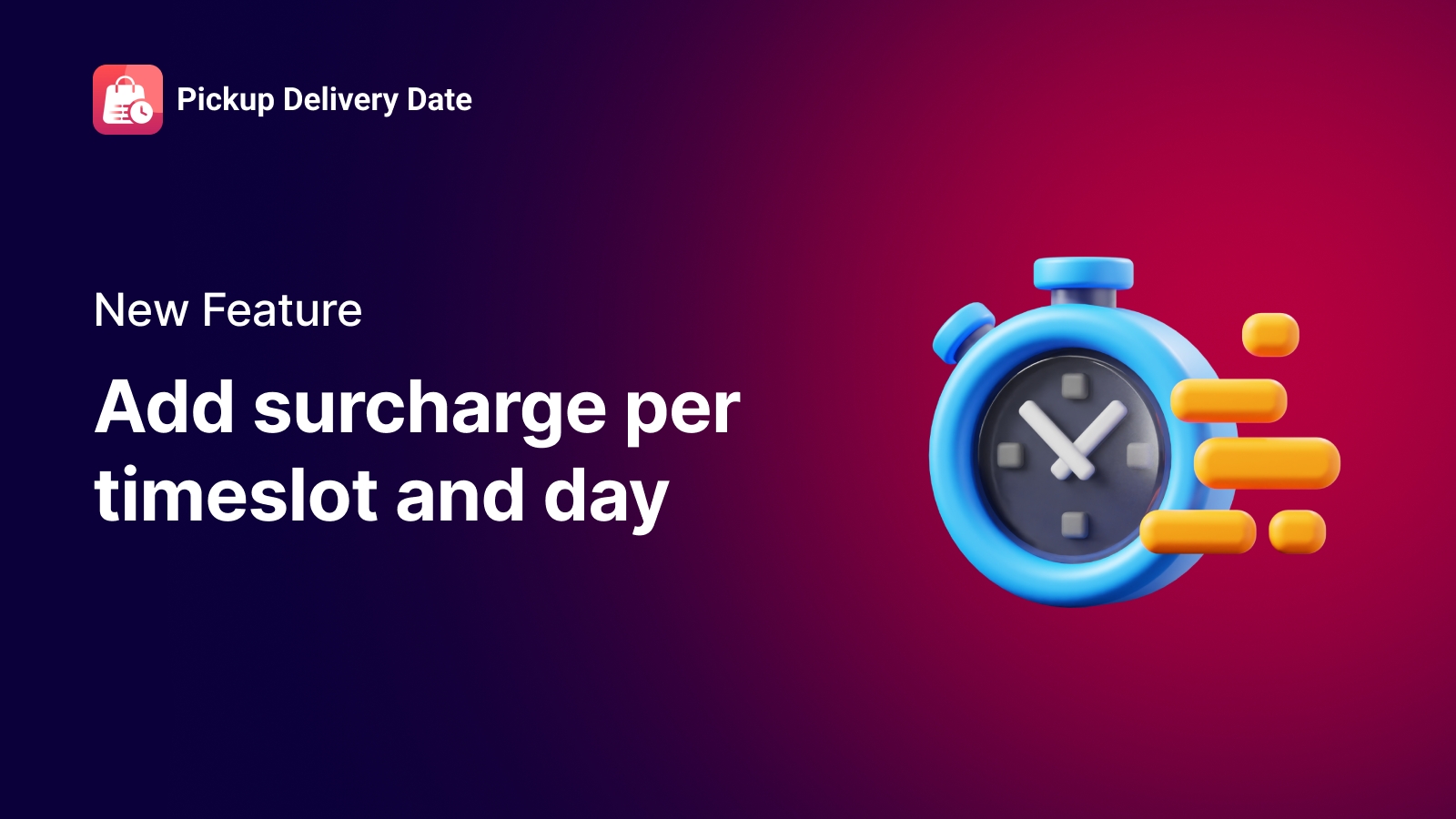
New features that help you stop losing money on peak hours
